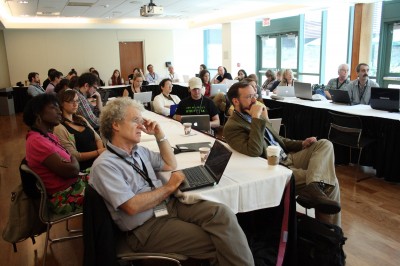The free movement of persons, goods, workers and capital within the European Union is one of the fundamental principles of the European Community. However, finding a job in another EU country can be difficult – the lacking recognition of skills and qualifications is one of the possible obstacles. The EU has launched a variety of initiatives to increase the mobility of labor within the Union and a recent Eurobarometer survey entitled “European area of skills and qualifications” aimed to collect data on EU citizens’ attitudes on education and experiences and perceptions of working in other countries.
A successful education policy depends strongly on the support of teachers, students, parents and society as a whole. Thus, their views on the most important aspects of education, and the main skills that education can provide are valuable data for policy-makers. From a list of eight aspects of education (out of which the responders could choose three), 65 percent selected the teacher’s ability to motivate the students and 50 percent picked the teacher’s subject knowledge as most important aspect.
There was a significant difference between the European nations concerning which aspects they find more important. Only in Hungary and in the Czech Republic did the responders choose the teacher’s expertise over the ability to engage and motivate the students. Only 52 percent of Hungarians found the latter more important – in comparison the EU average was 65 percent as mentioned earlier. The Hungarian results are similar to other countries in the region, such as Poland and Romania (both 50% and among the lowest figures) and Bulgaria (53%). Yet responders from the Baltic states selected this aspect in 71 to 67 percent, proving that even post-socialist societies have a rather mixed opinion on what is important in education.
Regarding the question about areas of improvement, only 39 percent of Hungarians chose the teacher’s ability to motivate, while the EU average was 51 percent. Croatian, Italian, Polish and Bulgarian respondents had the same notion as Hungarians: all of them marked the ability to engage and motivate to be developed among the lowest in the EU.
From these answers, we can conclude that in these, mainly Central and Eastern European societies the teacher’s expertise or subject knowledge weights more, than the ability to engage and motivate the students. Also, both the Hungarian and Czech respondents valued learning environments that stimulate students’ creativity and curiosity significantly lower (30 and 29 percent) than the EU average (39%), similar to their Romanian (27%) and Italian (29%) counterparts. Practical work experience was especially valued in Latvia (40%) and Slovenia (46%), compared to the EU average of 31%.
Using the OECD database and the PISA surveys we can compare the educational systems of the Czech Republic and Hungary with other countries in the Central and Eastern European region. The OECD Programme for International Student Assessment (PISA) surveys are done in every three years, with randomly selected fifteen-year-olds. We have selected the Czech Republic, Estonia, Hungary and Poland for comparison to represent Central Europe.
Comparing the students’ performance in mathematics, Estonian and Polish teenagers have reached the highest scores, while Hungary and the Czech Republic had the greatest gender difference. In the reading tests, Polish students had the highest average score; closely followed by the Estonians. Estonian students also did the best in science by far. When tested for problem-solving skills, Estonian students did the best, closely followed by the Czech.
The Hungarian government spends significantly less on education, than the other three countries, yet Hungarian students reported to feel happy at school remarkably more, than their Czech, Estonian or Polish counterparts. Meanwhile Poland had the best student-teacher ratio both in socio-economically disadvantaged and advantaged schools. Despite all the great test results, Estonian and Polish students reported to be skipping school the most.
Hungary has shown the greatest correlation between socio-economic status and student performance and also the biggest gap between students attending schools located in a village and in a city, while Czech schools seem to be the most independent from central governments.
Why are Poland and Estonia visibly more successful than other countries of the region? Going back to the Eurobarometer survey might explain that phenomenon. The Estonians valued the teacher’s ability to motivate and engage students by 71%. Polish respondents have also chosen the motivating teachers over practical knowledge (50 and 46 percents) and they valued learning environments that stimulate students’ creativity and curiosity the highest (47%) among post-socialist countries.




